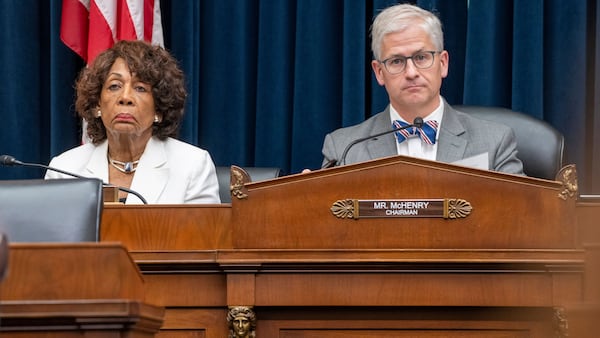- Blockchain advocates are waiting to review the final line on smart contracts of the Data Act after negotiations ended this week.
- MEP Damian Boeselager shares what the smart contract regulation means in the landmark bill.
Blockchain advocates are bracing for the next phase of the European Union’s landmark data bill as policymakers concluded negotiations and set the stage for a battle over smart contracts.
The Data Act lays down rules for smart devices connected through the internet. One element in the bill requires smart contracts used for sharing data between smart devices to meet standards requiring the interruption or termination of transactions.
Contradicting immutability
This is bad for DeFi because it contradicts the immutable nature of the smart contract technology used in blockchain-based networks like Ethereum. With the scope so loosely defined, blockchain advocates have feared this provision could wreck the sector and chase developers out of Europe.
“My goal wasn’t even to regulate smart contracts unless there was a real intimate connection to the law that I was basically writing,” Damian Boeselager, a member of the European Parliament from Volt Europa political party who took part in the negotiations told DL News.
NOW READ: Fidelity races BlackRock to a Bitcoin ETF — but Cathie Wood’s Ark is first in line
Now after more than a year of discussions between industry and legislators, blockchain advocates will have to wait to review the final text of the legislation. In the meantime, both sides set the record straight.
The EU wants to give consumers more control over data generated by their devices. With a legal obligation to switch off smart contracts, a consumer would be able to opt out of the automated transfer of data from, say, their smart watch to third parties.
‘If a smart contract cannot provide such an offering then they are not the right tool in this context of data sharing.’
— Damian Boeselager,
The blockchain industry has been alarmed that these requirements would conflict with the needs of web3. But blockchains were not at the top of policymakers’ agenda.
“If a smart contract cannot provide such an offering then they are not the right tool in this context of data sharing,” Boeselager said. “Whether or not smart contracts are generally useful in other fields of the economy is not what we were assessing.”
Article 30
After engaging on the issue for more than a year, a final industry push to target Article 30 (requiring a built-in feature to halt or interrupt transactions) brought together key trade associations and organisations in an open letter to lawmakers in June. They asked policymakers to ensure permissionless blockchains — the open source, decentralised ones like Ethereum — are left out of the legislation.
NOW READ: EU data bill threatens to upend smart contracts in potential blow for DeFi
In the last week of negotiations, policymakers and EU member state representatives tweaked the language of the controversial Article 30 to better reflect the regulatory intentions, though made no direct references to the kinds of technologies used.
The article is meant to capture the “execution of contractual clauses in the context of data sharing,” rather than smart contracts in general, said the MEP.
Setting a precedent
While blockchain advocates were encouraged by the recognition of their concerns, the struggle is not over. There may be implications for future regulations involving the technology. After all, the Data Act took the lead on defining smart contracts in EU policy.
“It is essential to engage in further discussions regarding the nature and capabilities of permissionless technology before referencing this definition in other legislation,” said Mariana de la Roche, senior regulatory affairs expert at open source blockchain foundation IOTA and member of the board at the international trade association, INATBA.
NOW READ: Crypto lobbyists hope Maxine Waters is wavering on Gensler’s crackdown
If not, there could be “unintended consequences for the use of smart contracts and permissionless blockchain technology as a whole,” she added, speaking to DL News also on behalf of others who led efforts drafting the open letter to Data Act legislators.
‘It is essential to engage in further discussions regarding the nature and capabilities of permissionless technology before referencing this definition in other legislation.’
— Mariana de la Roche
Even as they await a final draft of the Data Act, blockchain advocates say their alarm bells have at least reached policymakers, who were able to more clearly define the scope to fit the regulators’ intentions.
“While policymakers emphasised the need for industry to ‘trust their intentions,’ there should also be reciprocity in terms of trust-building,” de la Roche said.
‘Regulatory necessity’
If there is a digital contract between two entities for the purpose of “sharing data from your washing machine or whatever,” there is a “regulatory necessity” to be able to switch off that contract at some point, Boeselager said.
The same logic applies to the rest of the regulation, he added, like ensuring users can switch cloud service providers to share data with for a more competitive option. That’s where a termination clause comes into play.
A bit random
It seemed “a bit random” to single out a single category of digital contractual relations in the article, “in this case blockchain technology,” Boeselager said. He also steered clear of engaging too much with the industry, since that was not his focus.
Still, Boeselager said he recognised that the original Data Act proposal from the European Commission failed to clarify what the purpose of the data sharing was. “In the end, a smart contract always shares or transmits data. So I understand a certain nervousness in that sense.”
The road ahead
Political negotiations on the Data Act may have been completed, but in the next two months the text will be reviewed as technical experts fine tune the details. An unofficial version may be released by mid-July to be endorsed by the member states’ representatives, according to an EU source.
The Data Act could then be officially adopted by the European Council in September, and would need further approval from a European Parliament plenary vote.
Have tips on crypto policy? Contact the author at inbar@dlnews.com.





